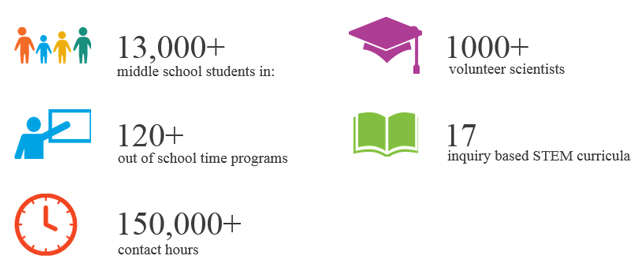LexisNexis Legal & Professional,
Business Insight Solutions, 7 March 2017
This article published on International Women's Day 2017, shines a light on the issue of forced labour, as 55% of people who are estimated to be in forced labour are women and girls. It also discusses modern slavery legislation changes and discussions in France and Australia. This legislation could contribute to the goal of SDG target 8.7 which is to take immediate and effective measures to eradicate forced labour, end modern slavery and human trafficking and secure the prohibition and elimination of the worst forms of child labour, including recruitment and use of child soldiers, and by 2025 end child labour in all its forms.
LexisNexis Legal & Professional,
Business Insight Solutions, 27 February 2017
This article provides insight into an international company that is dealing with human rights issues in its supply chain from the past, in particular modern slavery, but which in recent years has been one of the early adopters of ongoing human rights due diligence. This is in line with the goal of SDG target 8.7 which is to take immediate and effective measures to eradicate forced labour, end modern slavery and human trafficking and secure the prohibition and elimination of the worst forms of child labour, including recruitment and use of child soldiers, and by 2025 end child labour in all its forms.
LexisNexis Legal & Professional,
Business Insight Solutions, 19 December 2016
Consumers' purchasing behaviour is increasingly influenced by businesses' ethical behaviour. As Christmas is a time of celebration and this goes hand in hand with consumption, this article explored some of the products that are at risk of being produced by people in modern slavery.
Brightmine,
8 December 2016
In the UK, gender pay gap reporting legislation will require large employers to publish their overall mean and median gender pay gaps from 2018. XpertHR highlights its useful tools including frequently asked questions relating to unequal pay, and legal guidance on the new legislation. The Regulations contribute to advancing SDG 10.4 to adopt policies, wage and social protection policies to progressively achieve greater equality.
LexisNexis Legal & Professional,
Business Insight Solutions, 30 November 2016
This feature length article highlights findings from three new reports, showing the progress by companies complying with the UK Modern Slavery Act. With almost half of FTSE companies currently not complying, and 77% of companies that participated in a recent research study agreeing there is a likelihood of modern slavery occurring in their supply chains - there is still much to do. The goal of SDG target 8.7 is to take immediate and effective measures to eradicate forced labour, end modern slavery and human trafficking and secure the prohibition and elimination of the worst forms of child labour, including recruitment and use of child soldiers, and by 2025 end child labour in all its forms.
LexisNexis Legal & Professional,
Business Insight Solutions, 18 October 2016
18th October 2016 was the 10th EU Anti-Trafficking Day, coinciding with the UK's Anti-Slavery Day. This article published on this day of awareness reflected on the considerations and opportunities for businesses regarding modern slavery, including the establishment of Alliance 8.7, focused on accelerating the work on SDG 8.7, which is to take immediate and effective measures to eradicate forced labour, end modern slavery and human trafficking and secure the prohibition and elimination of the worst forms of child labour, including recruitment and use of child soldiers, and by 2025 end child labour in all its forms.
Elsevier,
Elsevier Foundation, 17 October, 2016
Recognising the need to support STEM education, as part of its overall commitment to SDG4, the Elsevier Foundation has partnered with the New York Academy of Sciences' (NYAS)to expand its after-school mentoring in STEM programme. Inspiring more than 1,300 Middle School students each year, the After School Program trains graduate students and postdoctoral fellows to mentor 8 -14 year olds. Now with funding from the Elsevier Foundation, the prohgramme will be expanded to reach underserved children.
ICIS,
13 October 2016
California-based Facebook is planning to build two data centres measuring 184,000 square metres in Denmark’s third largest city. This could push up total Danish power demand by a 10%, and accelerate investments in wind production. Increasing the production of wind power and other renewables contributes to the advancement of SDG target 7.2 to increase the share of renewable energy in the global energy mix.
Personnel Today,
11 October 2016
As part of the UK Government’s Women in Finance Charter, 72 firms have agreed to publish progress on gender equality annually, ahead of gender pay reporting Regulations in 2017. Sixty firms in the UK have committed to having at least 30% of women in senior roles by 2021. Thirteen finance companies are aiming to have complete gender parity in senior roles by 2021. These steps directly align with SDG 10.4 to adopt policies, wage and social protection policies, to progressively achieve greater equality.
Personnel Today,
10 October 2016
Mental ill health is the third biggest cause of absence in the workplace. The mental health equivalent of a physical first-aid course provides participants with the skills and confidence to recognise the signs and symptoms of common mental health issues and effectively guide a person towards the right support. By adpating this course, more efforts can be made to meet SDG 3.4 by utilising preventive methods and treatment to promote mental health and well-being.

